#The Village Orchestra
Explore tagged Tumblr posts
Text
KiloWatts & Vanek - Perennials Remixes (Harmonious Discord)
8DPromo · KiloWatts and Vanek - Perennials Remixes (Harmonious Discord)
Spring begins to bloom as seedlings lay down their roots, a sturdy foundation for their generational journey. The masters of the journey, those perennial species that brave the cycles of the earth, continue to endure. Rewind nearly 20 years to a festival in Augsburg, Germany, called Lab30, which featured a bouquet of forward-thinking musical pioneers. In that collective were the cross-genre band KiloWatts and Vanek, who had played their first show in 2004 as part of a gathering of like-minded music producers and artists worldwide, focusing heavily on experimental electronic music and art. Fast forward to the present, KiloWatts and Vanek have reunited in a boundlessly special album called Perennials. The album is a truly impressive blend of their classic signature sound and multiple nods to musical innovations that have sparked in between their albums. In celebration of Perennials, the duo decided to reach out to some of those artists for a reunion, as well as collaborate with new friends made along the way. The collection spans a network of producers from near and far, old and new, with eyes looking to the future. The remix collection offers a bountiful selection for all musical minds, from the intelligently precise ethereal offerings by Orphax, The Village Orchestra, Megaheadphoneboy, and Lackluster to the upbeat midtempo music from Erothyme, Gift Culture, Polygon Rainbow, and PointBender. Heavier techno placements from PointBender and Andrew Sega ultimately crescendo into the edit-heavy, dub offering from PHAENOS. Rediscover the Perennials listening experience with this dynamic selection of remixed offerings and rediscover the collective experience.
*Klaus Benedek (Fortunea Records) – “The Gift Culture Remix of One Day is a Beauty!” LUROB (Still Bumpin) – “Nice variety on this release. PointBenders Warehouse Dub of Nankurunasia is my go to.” P.M.F.M. (Deep Dive Corp.) – “Excellent release!” Danny Ward (Moodymanc) – “All nice … Fermenwah (TVO Tool) in particular got me here.” Sandro Bianchi (Ibiza Sonica) – “This is amazing!” Redstickman** (The Ambient Mafia) – “Great album! Please Hold (Polygon Rainbow Remix) is amazing. Super lush and chill. Love it!”
Available Now From: Beatport, Bandcamp, Apple Music, And Spotify.
#KiloWatts#Vanek#Orphax#The Village Orchestra#Megaheadphoneboy#Lackluster#Polygon Rainbow#Erothyme#Gift Culture#PointBender#Electronica#Harmonious Discord#Austin
3 notes
·
View notes
Text
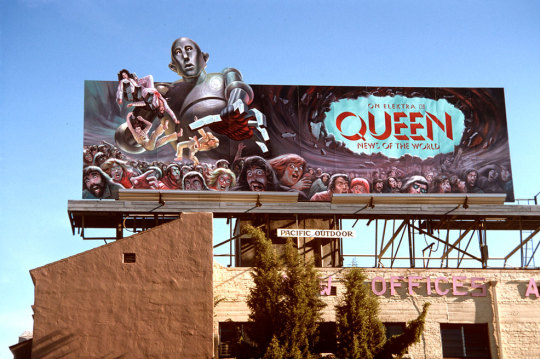
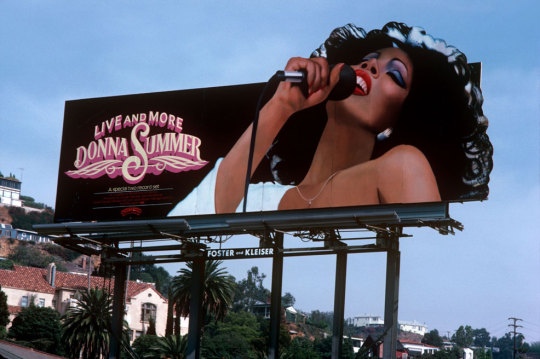

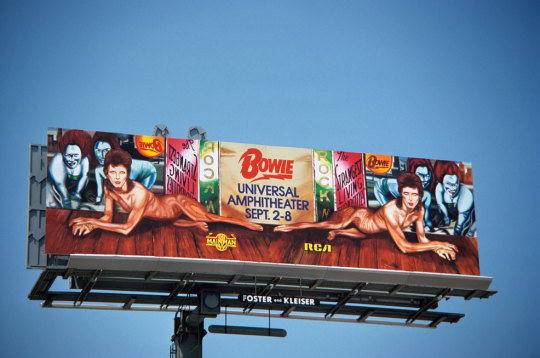


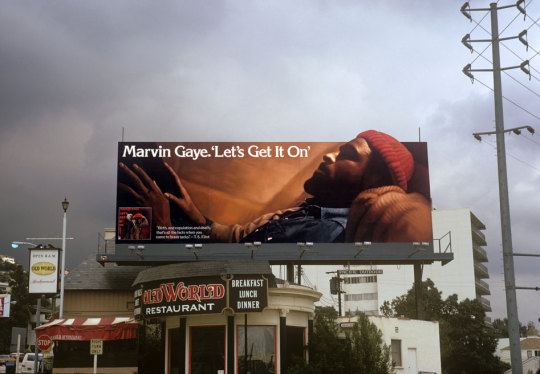
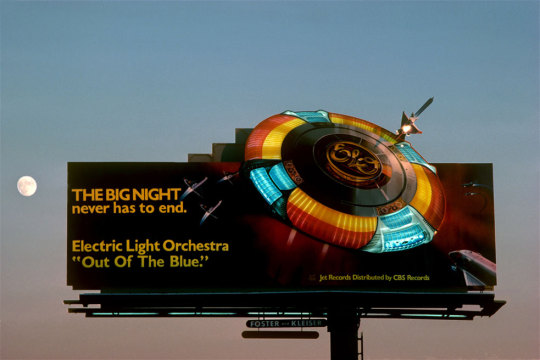
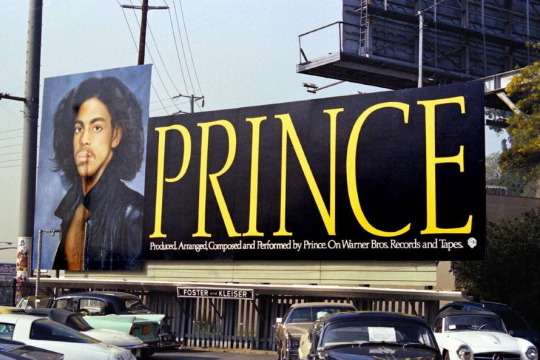
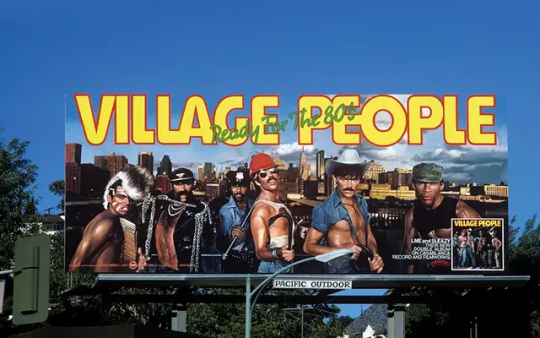
Sunset Strip rock billboards (photos by Robert Landau and others)
#rock and roll#robert landau#sunset strip#donna summer#cheap trick#electric light orchestra#david bowie#linda ronstadt#queen#prince#joni mitchell#village people#marvin gaye#hollywood#los angeles#billboards
5K notes
·
View notes
Text
#Soaratorium#Kamura Village#Elgado#MHXX#MHR OST#MHXX OST#Monster Hunter Generations Ultimate#MHGU#Monster Hunter Rise#MHR#Monster Hunter Rise: Sunbreak#Sunbreak#MHRS#Hirofumi Kurita#Tokyo Philharmonic#Monster Hunter#MonHun#mh#MH 20th Anniversary Orchestra#Mh20DAY
8 notes
·
View notes
Text
Capturing History in Sound: "Duke Ellington at Fargo, 1940 Live"
Introduction: “Duke Ellington at Fargo, 1940 Live” is more than just a live recording—it’s a piece of jazz history, capturing the unique spirit of Duke Ellington’s orchestra during a pivotal moment in their journey. Recorded on November 7, 1940, at the Crystal Ballroom in Fargo, North Dakota, this album provides listeners with a rare window into Ellington’s live performances, away from the…
#Ben Webster#Benny Goodman#Benny Goodman at Carnegie Hall#Classic Albums#Cootie Williams#Duke Ellington#Duke Ellington at Fargo 1940 Live#Duke Ellington Orchestra#Jack Towers#Jazz History#John Coltrane at the Village Vanguard#Johnny Hodges#Ray Nance#Rex Stewart#Richard Burris#Tricky Sam Nanton
3 notes
·
View notes
Text
🎶 tumblr's favourite sing-along song 🎶
ROUND 2 / 10
please remember it's not personal if your favourite song that could've fit in with this group isn't here! this is only one poll with only ten options - there will be a bunch of amazing songs that don't appear in each round but this doesn't mean i think the ones that missed out are less deserving of love & recognition. this competition is ultimately completely meaningless, it's just for fun. so please don't swear at me about "[popular song] erasure". thanks! and enjoy! 🥳
~~~~~~~
the winner of each round will return in semi-final 1
top 5 in semi-final 1 will battle it out in semi-final 2
top 2 in semi-final 2 will go to the grand final
grand final will crown the winner ✨Tumblr's No. 1 Favourite Sing-Along Song of All Time No Backsies✨
~~~~~~~
round 1 results
#i didnt even want to put bohemian rhapsody in here tbh#just giving the people what they want 😔#wake me up before you go go#wham!#take on me#a-ha#mr blue sky#electric light orchestra#elo#ymca#village people#girls just want to have fun#cyndi lauper#bohemian rhapsody#queen#i wanna dance with somebody#whitney houston#i'm gonna be (500 miles)#i'm gonna be#the proclaimers#never gonna give you up#rick astley#rickroll#come on eileen#dexy's midnight runners#sing-along poll#sing along poll#music poll#tumblr polls#poll
28 notes
·
View notes
Text
youtube
"The Village" (Night Shyamalan) is a breath-taking masterpiece of James Newton Howard.
Violin player Hilary Hahn goes all out.
#james newton howard#night shyamalan#the village#hilary hahn#film music#soundtrack#soundtracks#film score#movie music#film composer#composer#composers#orchestra#music#musician#musicians#movie#movies#film#films#Youtube
1 note
·
View note
Text
Dylan LeBlanc & Jarrod Dickenson Live Show Review: 2/1, Sleeping Village, Chicago

Dylan LeBlanc & Jim LeBlanc
BY JORDAN MAINZER
Last night at Sleeping Village, when Dylan LeBlanc and his excellently titled band The Steel Vaqueros (guitarist Clay Houle, bassist Jim LeBlanc--also Dylan's father--and drummer Dave Givan) walked out to Orchestra di Bruno Nicolai & Orchestra di Ennio Morricone's "L'estasi dell'oro (Dal film 'Il buono, il brutto, il cattivo'''')", I didn't think anything they were going to play could match the grand cinematic scope of Spaghetti Western music. I was dead wrong. Whether performing songs from his stellar 2023 concept album Coyote (ATO) or back catalog slow burners like "If the Creek Don't Rise", LeBlanc and company created worlds of space and slowly filled them up with sound.
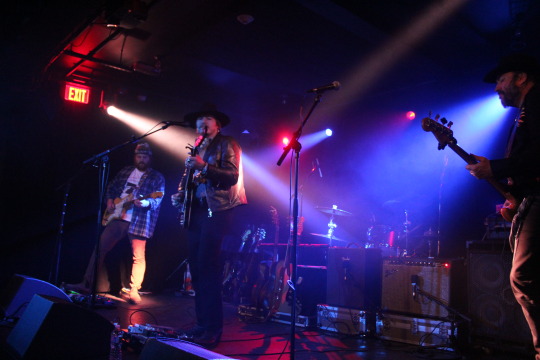
From left to right: Clay Houle, Dylan LeBlanc, & Jim LeBlanc
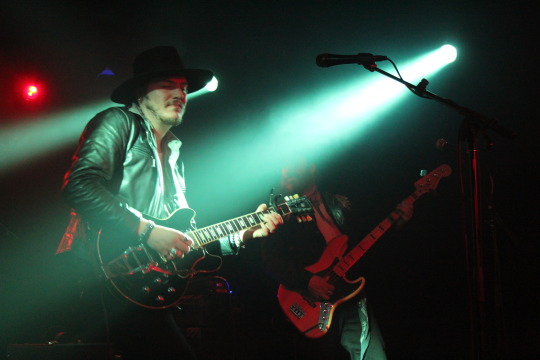
Dylan LeBlanc & Jim LeBlanc
LeBlanc started off the night with "Beyond the Veil", the perfect song to introduce his palette and skills: leading a Crazy Horse-style band, singing with what can only be described as a gravel-throated falsetto, simultaneously worn and gentle. That vocal echo gorgeously contrasted the instrumentation throughout the night, like the tactile guitars on "Dust" and the mighty kick drum on "Dark Waters", the combination structured, yet loose. You could say the same thing about the songs themselves. Though each composition was presented faithfully, The Steel Vaqueros took their opportunities to jam. They introduced "No Promises Broken" with acoustic guitar and bass noodling, "Coyote" with a sprinkling instrumental. And "Wicked Kind" pummeled with the most explosive stomp this side of "The Chain". Turns out, if listening to Dylan LeBlanc albums allow you the opportunity to consciously explore the commonalities between his created universes and our lived one, watching him live allows you to simply get lost in both.
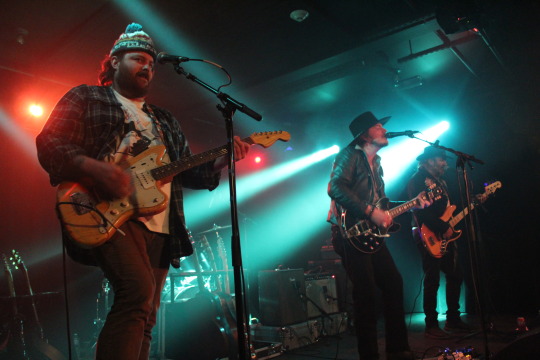
From left to right: Houle, Dylan LeBlanc, & Jim LeBlanc
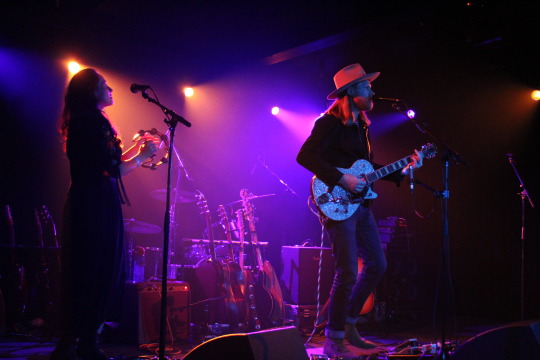
Claire Dickenson & Jarrod Dickenson
Opening for LeBlanc was Nashville-via-Texas singer-songwriter Jarrod Dickenson, who also released a very good album in 2023, BIG TALK (Hooked). With a couple guitars in tow and accompanied by his wife Claire on backing vocals and hand percussion, Dickenson played from throughout his discography and showcased his versatility on the axe, fast-picking on "Faint of Heart", blues-ily chirping on "Home Again". With sparser arrangements, he was able to emphasize his lyrics, taking the time to contextualize some of his songs before playing them, such as ode to touring "Born to Wander" and the empathetic "Long Hard Look". Selfishly, my favorite part of his set happened because yours truly posted on Instagram how much he'd like to hear Dickenson's cover of Guy Clark's "Dublin Blues" (originally released on his 2020 covers EP Under a Texas Sky). Though he usually plays it on his 6-string acoustic guitar, he had been leaving that guitar at the hotel while on tour, as he only has a 40-minute opening set. Well, he borrowed a capo from The Steel Vaqueros and valiantly nailed it on the 12-string. Even if it was a flop, though, the gesture exemplified the friendly spirit of the night, steeped in folk tradition but unafraid of experimentation.

Jarrod Dickenson
#live music#dylan leblanc#jarrod dickenson#sleeping village#ato#coyote#jim leblanc#clay houle#dave givan#orchestra di bruno nicolai & orchestra di ennio morricone#bruno nicolai#ennio morricone#ato records#crazy horse#the steel vaqueros#claire dickinson#big talk#hooked#hooked records#guy clark#under a texas sky
1 note
·
View note
Text
New Audio: The Smile Shares Brooding and Cinematic "Friend Of A Friend"
New Audio: The Smile Shares Brooding and Cinematic "Friend Of A Friend" @radiohead @thomyorke @JnnyG @SonsOfKemet @TomSkinner__ @thesmiletheband @XLRECORDINGS @NastyLittleMan
The Smile is an acclaimed outfit that features some of the world’s most accomplished musicians — and a couple of household names: Radiohead‘s Thom Yorke and Jonny Greenwood, and Sons of Kemet‘s Tom Skinner. Last year, the trio released their critically applauded Nigel Godrich-produced full-length debut A Light For Attracting Attention. The album saw the acclaimed outfit collaborating…
View On WordPress
#alt rock#art rock#London Contemporary Orchestra#New Audio#New Single#Nigel Godrich#Oxford UK#Radiohead#Robert Still#Robert Stillm#Sam Petts-Davies#Single Review#Single Review: The Smile Friend Of A Friend#Sons of Kemet#The Smile#The Smile A Light For Attracting Attention#The Village East#Thom Yorke#XL Recordings
0 notes
Text
what the fuck is a sunflower seed addiction. why does it always hit right when im trying to go to bed.
#i cant believe i get to the practice with the city symphonic orchestra and sabina has the audacity to tell me my hair lookin like mulder’s#ALL I DID WAS SHOWER#this is how i know im hyperfixating. im stealing another personality#not much to steal tho tbh. when im already Like This#anyways i got an over clingy cat on my lap and i NEED to sleep so i can hopefully get that goddamn paper done and bring him to the vet and#get fuckin concert black shit from value village or whatever all tomorrow somehow#and im sitting here downing seeds like a greedy bird.m#jesus#mandont
1 note
·
View note
Text
Spring 2023 Anime - What We're Watching
Welcome back to Otaku Thursday! We are now at least one week out from Sakuracon–which means Star and I are totally swamped with cosplay. Or at least I am being overwhelmed with cosplay but I think Star is finished with hers as of today. But because I am in the middle of cosplay, today I am going to do an extremely simple post today so that I can get back to it. Today, I’m just going to list out…

View On WordPress
#a galaxy next door#aniblogger#anime#ao no orchestra#birdie wing: gold girl&039;s story season 2#demon slayer swordsmith village arc#hell&039;s paradise#insomniacs after school#mahou shoujo magical destroyers#mobile suit gundam#my home hero#opus. colors#oshi no ko#otaku#otaku elf#otaku thursday#skip and loafer#spring 2023 anime#the ancient magus&039; bride season 2#the cafe terrace and its goddesses#the dangers in my heart#the marginal service#tokyo mew mew new season 2#weeb#weeboo#what to watch#what we&039;re watching#witch from mercury season 2#world dai star#yuri is my job
1 note
·
View note
Text



Palace of the Republic, Berlin
The right to work at a job of one’s own choice was guaranteed by the East German constitution (Aus erster Hand, 1987). While there were some (mostly alcoholics) who continuously refused to show up for jobs offered by the state, their numbers represented only about 0.2% of the entire East German work force, and only 0.1% of the scheduled work hours of the rest of the labor force was lost due to unexcused absences (Krakat, 1996). These findings are especially noteworthy, given that people were generally protected from being fired (or otherwise penalized) for failing to show up for work or for not working productively (Thuet, 1985). The importance of the communist characteristic of full employment to workers is reflected in a 1999 survey of eastern Germans that indicated about 70% of them felt they had meaningfully less job security in the unified capitalist country in the 1990s than they did in communist East Germany (Kramm, 1999)
The Triumph of Evil, A. Murphy (2002)
The GDR had more theatres per capita than any other country in the world and in no other country were there more orchestras in relation to population size or territory. With 90 professional orchestras, GDR citizens had three times more opportunity of accessing live music, than those in the FRG, 7.5 times more than in the USA and 30 times more than in the UK. It also had one of the world’s highest book publishing figures. This small country with its very limited economic resources, even in the fifties was spending double the amount on cultural activities as the FRG. Every town of 30,000 or more inhabitants in the GDR had its theatre and cinema as well as other cultural venues. [...] Subsidised tickets to the theatre and concerts were always priced so that everyone could afford to go. Many factories and institutions had regular block-bookings for their workers which were avidly taken up. School pupils from the age of 14 were also encouraged to go to the theatre once a month and schools were able to obtain subsidised tickets. [...] All towns and even many villages had their own ‘Houses of Culture’, owned by the local communities and open for all to use. These were places that offered performance venues, workshop space and facilities for celebratory gatherings, discos, drama groups etc. There was a lively culture of local music and folk-song groups, as well as classical musical performance.
Stasi State or Socialist Paradise? The German Democratic Republic and What Became of It, Bruni de la Motte and John Green (2015)
Work itself was elevated to a place of pride and esteem and, even if you were in a lower paid job, you were valued for the work you did as a necessary contribution to the functioning of society. The socialist countries were also designated ‘workers’ states and it was not merely an empty phrase when the GDR government argued that the workers, who produced the commodities that society needed, should be placed at the forefront of society. Those who did heavy manual work, like miners or steel workers, enjoyed certain privileges: better wages and health care than those in less strenuous or dangerous professions. The GDR had one of the most comprehensive workers’ rights legislation of any other country in the world. From 1950 onwards, there was a guaranteed right to work. This right applied to everybody, including disabled people and those with criminal records. Employers were made responsible for the training and integration of everyone. This meant that everybody felt they had a place in society and were needed. This was particularly important for disabled people and those who wanted a new start in life after being convicted of a crime. Working people were under a much more relaxed discipline in the workplace. Because there was job security and it was almost impossible to be sacked, an authoritarian discipline was difficult, if not impossible, to achieve. In Western countries work discipline is invariably enforced by the implicit threat of job loss. In the GDR, only in cases of serious misconduct or incompetence would employees be sacked. There were individual cases where employees were sacked illegally for what was considered ‘oppositional’ or ‘anti-state behaviour’, but usually the sanction would involve demotion or being transferred to a different workplace. This job security gave employees a sense of confidence and a considerable power in the workplace. It meant that workers could and would voice criticism over inefficiencies or bad management without having to fear for their job. Job security and lack of fear about losing it was probably one of the greatest advantages the socialist system offered working people. Even in cases where a worker was sacked from one job, other alternative work would be offered, even if not on the same level. The other side of the coin was that there was also a social obligation to work - the GDR had no system of unemployment benefit, because the concept of unemployment did not exist.
Stasi State or Socialist Paradise? The German Democratic Republic and What Became of It, Bruni de la Motte and John Green (2015)
406 notes
·
View notes
Text
Since the early days of the Soviet Union, the Bolsheviks and later communist parties everywhere placed a great emphasis on culture and on the contribution cultural workers could make to the building of socialism. One of the first things the Soviet Army of occupation did at the end of the war, was attempt to resuscitate cultural activity in a war-ravaged and demoralised Germany. The one thing the Russians could never get their head around was how a country with such a high level of culture, a nation that had produced a Bach and a Beethoven, a Goethe and a Schiller could have carried out such barbaric crimes in other countries. The Soviet army had cultural officers attached to each battalion and the war had hardly ended before they began seeking out cultural workers and encouraging them to take up their batons, musical instruments, pens and paintbrushes again. Temporary cinemas were established, orchestras formed, theatres opened and publishing houses set up.
In contrast to West Germany, in the Soviet Zone and later in the GDR, there was also an early emphasis on making films about the Nazi period as a means of educating and informing a nation ignorant of or in denial about what had happened. [...]
The GDR had more theatres per capita than any other country in the world and in no other country were there more orchestras in relation to population size or territory. With 90 professional orchestras, GDR citizens had three times more opportunity of accessing live music, than those in the FRG, 7.5 times more than in the USA and 30 times more than in the UK. It also had one of the world’s highest book publishing figures. This small country with its very limited economic resources, even in the fifties was spending double the amount on cultural activities as the FRG.
Every town of 30,000 or more inhabitants in the GDR had its theatre and cinema as well as other cultural venues. [...] Subsidised tickets to the theatre and concerts were always priced so that everyone could afford to go. Many factories and institutions had regular block-bookings for their workers which were avidly taken up. School pupils from the age of 14 were also encouraged to go to the theatre once a month and schools were able to obtain subsidised tickets. [...]
All towns and even many villages had their own ‘Houses of Culture’, owned by the local communities and open for all to use. These were places that offered performance venues, workshop space and facilities for celebratory gatherings, discos, drama groups etc. There was a lively culture of local music and folk-song groups, as well as classical musical performance.
Stasi State or Socialist Paradise? The German Democratic Republic and What Became of It by Bruni de la Motte & John Green with Seumas Milne (Contributor), 2015.
252 notes
·
View notes
Text
#Moga Village#Tanzia#Tanzia Port#Moga#MH3U OST#MH3U#Monster Hunter 3#Monster Hunter 3 Ultimate#MH3#MHtri#Hirofumi Kurita#Tokyo Philharmonic#Monster Hunter 20th Anniversary Orchestra#Mh20NIGHT#Monster Hunter#MonHun#mh
8 notes
·
View notes
Text
Chris Potter: A Modern Jazz Virtuoso Redefining the Saxophone
Introduction: In the world of jazz, there are those who follow tradition and those who push its boundaries to new heights. Chris Potter, an extraordinary saxophonist, composer, and bandleader, falls into the latter category. With his technical brilliance, harmonic sophistication, and an unrelenting quest for innovation, Potter has earned a reputation as one of the most influential voices in…
#Adam Rogers#Antonio Sánchez#Ben Williams#Chris Potter#Chris Potter Underground Orchestra#Craig Taborn#Dave Holland#Dave Holland Quintet#Follow the Red Line: Live at the Village Vanguard#Gratitude#Imaginary Cities#Jazz History#Jazz Saxophonists#Joanne Brackeen#John Coltrane#Johnny Helms#Mingus Big Band#Nate Smith#Not for Nothin&039;#Pat Metheny#Paul Desmond#Paul Motian#Pink Elephant Magic#Presenting Chris Potter#Prime Directive#Red Rodney#Sonny Rollins#Terry Rosen#The Dreamer Is the Dream#Underground
2 notes
·
View notes
Text





“Come on, Old Man, lighten up!” 🍎
“Who are you calling old?” 👑
Wanted to take it easy after working on my reel, so I decided to doodle some of my thoughts and ideas for a Final Fantasy VII X TWST AU! This has been something I’ve thought about for a while, but just never got around to drawing it. I love Final Fantasy and since playing Rebirth and going to the orchestra concert, I decided to map it all out and work on some designs.
I’ve been wanting to draw Pomefiore, so the first piece shows off Vil in the role of cold Vincent and Epel as the energetic Yuffie! I thought Vil suited Vincent for a number of reasons from how most people see him as cold before getting to know him as well as Vincent’s view of himself as an ugly monster who must atone, similar to Vil seeing himself as ugly before and after his Overblot. Epel suits Yuffie as she wants to be seen as strong by her village and does that by stealing materia, but really she just causes everyone to see her as a bit of a nuisance who’s always getting in to trouble, similar to Epel’s desire to be strong by strength alone. Vincent and Yuffie are as different as could be, but they still care about one another in their own ways, like Vil and Epel. I could ramble more about Silver as Aerith, Lilia as Zack, etc., but this post is already getting long, so feel free to ask any questions in my inbox!
#twstxffviiau#twstxffvii#vil schoenheit#epel felmier#silver#malleus draconia#sebek zigvolt#floyd leech#jade leech#azul ashengrotto#twst#twisted wonderland#twisted wonderland fanart#twst fanart#ツイステ#ツイステッドワンダーランド#art#my art#fanart#doodle
206 notes
·
View notes
Text


kny orchestra concert: swordsmith's village edition visual!
#kny#kimetsu no yaiba#demon slayer#official art#genya shinazugawa#tanjiro kamado#nezuko kamado#mitsuri kanroji#muichiro tokito
527 notes
·
View notes